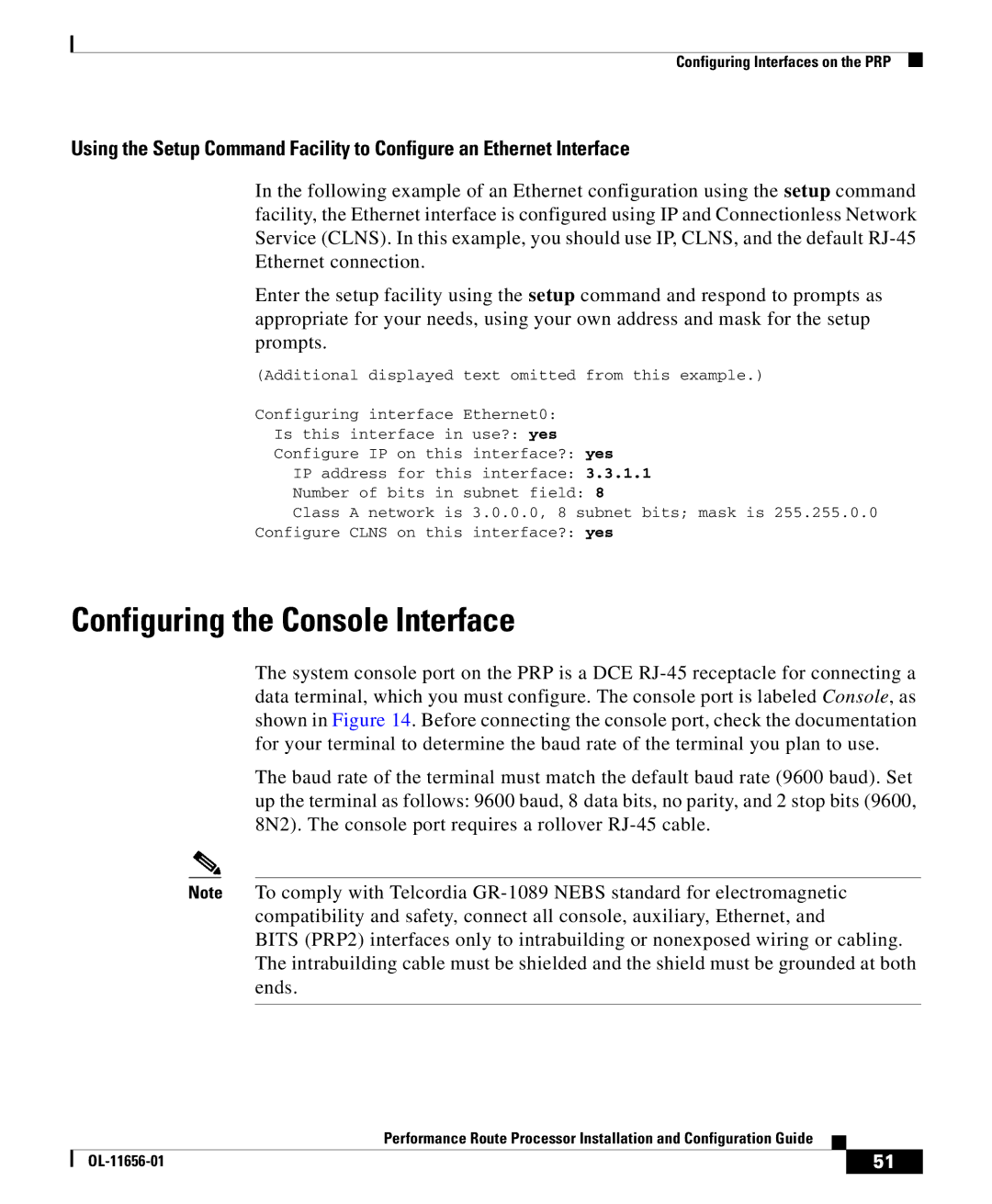
Configuring Interfaces on the PRP
Using the Setup Command Facility to Configure an Ethernet Interface
In the following example of an Ethernet configuration using the setup command facility, the Ethernet interface is configured using IP and Connectionless Network Service (CLNS). In this example, you should use IP, CLNS, and the default
Enter the setup facility using the setup command and respond to prompts as appropriate for your needs, using your own address and mask for the setup prompts.
(Additional displayed text omitted from this example.)
Configuring interface Ethernet0:
Is this interface in use?: yes
Configure IP on this interface?: yes
IP address for this interface: 3.3.1.1
Number of bits in subnet field: 8
Class A network is 3.0.0.0, 8 subnet bits; mask is 255.255.0.0
Configure CLNS on this interface?: yes
Configuring the Console Interface
The system console port on the PRP is a DCE
The baud rate of the terminal must match the default baud rate (9600 baud). Set up the terminal as follows: 9600 baud, 8 data bits, no parity, and 2 stop bits (9600, 8N2). The console port requires a rollover
Note To comply with Telcordia
BITS (PRP2) interfaces only to intrabuilding or nonexposed wiring or cabling. The intrabuilding cable must be shielded and the shield must be grounded at both ends.
|
| Performance Route Processor Installation and Configuration Guide |
|
|
|
|
| ||
|
|
| 51 | |
|
|
|
